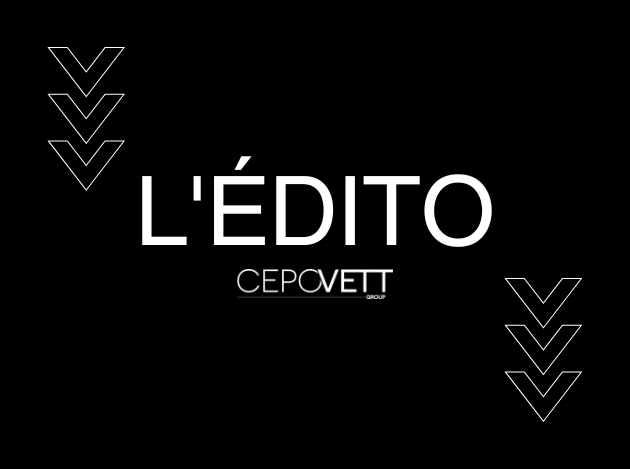Plastic detox
24 May 2023The protective clothing more and more glamorous
24 May 2023The fashion revolution accelerates
The publication of the Fashion Pact, within the framework of the G7, demonstrates the evolution of the fashion sector towards responsible production and marketing models. An acceleration towards sustainable fashion and an unprecedented collective commitment, heralding promising changes.
If there is one key fact to remember from the Fashion Pact presented by some thirty fashion companies to the G7 in Biarritz, it is the spirit of coalition. Generating 150 billion euros per year, but also 20% of wastewater, 10% of carbon emissions and 25% of pesticides, the fashion world has left its individualism behind to collectively address the environmental and social issues of the sector. In particular, the fight against global warming, the preservation of oceans and water resources, and biodiversity. 30% of the global players in the clothing industry have joined the project and we can expect others to follow. This gathering is historic because it is the tipping point that will move the lines and transform individual good practices into a broader industry-wide movement.
The salvation of the sector will depend on the necessary union of the key players in the market
Innovative solutions exist, but they need to be deployed collectively and on a large scale. In the field of professional clothing, for example, things are moving fast. Since 2017, the Novotel brand of the AccorHotels group, in collaboration with its supplier Cepovett, has implemented post-consumer recycling of its old hotel uniforms recycled into restaurant aprons, uniforms that become clothing again, in a closed loop. In BtoC, conducted for 5 years, the operation "Kaporal rachète & recycle ton jean" pays for the products in disuse of its customers and supports the creation "made in Marseille". This success is undeniable and demonstrates that French consumers expect brands and manufacturers to take concrete action in terms of the environment and responsibility.
Daring another model
Changing our lifestyles and consumption patterns for a better world for future generations is the great challenge of sustainable fashion. Producing more and more, even with alternative energies and raw materials, will not reverse the climate curve. In order to meet their commitments and in the face of a certain slowdown in consumption, textile manufacturers will not be able to do without a complete revision of their production processes.
The new economic model of responsible fashion is inexorably based on the logic of producing less and consuming better
The paradigm shift does not happen overnight. All the more reason to share innovations, transfer best practices from other sectors and support subcontractors in their transformation, keeping in mind the support of the entire value chain of the industry. Recycling, the second-hand market and rental are among the new trends that are shaping the future. New technologies and especially artificial intelligence offer new tools to help fast fashion manufacturers adjust their production and optimize the quantity of clothes produced. The rise of the second-hand market is also shaking up the sector's habits. According to the French Fashion Institute (IFM), 30% of French people surveyed said they bought second-hand clothes between 2010 and 2018. A market that could reach 51 billion dollars by 2024. The Vinted application, which allows to resell clothes already worn online, has attracted more than 700,000 members, targeting millennials (18-35 years). And it has been emulated.
Fast fashion or luxury: same fight!
The specialist in fashion for all, Kiabi launched, in 2017, a collection of clothing adapted for children with disabilities, clothes co-constructed with parents. A victory in favor of inclusion. The global CSR approach is also at the heart of the brand's strategy, which aims for 100% eco-designed products by 2030. Through its "Kiabi Human" program, it is trying to solve the delicate three-factor equation of low prices, volume and eco-design in six measures. For example, making its organic cotton T-shirts economically accessible to as many people as possible and washing its jeans with a laser instead of water. This is a textbook case which, tomorrow, thanks to its "Kiabers", will enable the brand to deploy its commitments in the heart of stores and reach a large number of consumers. Responsible fashion "at low prices" is also becoming more democratic.

